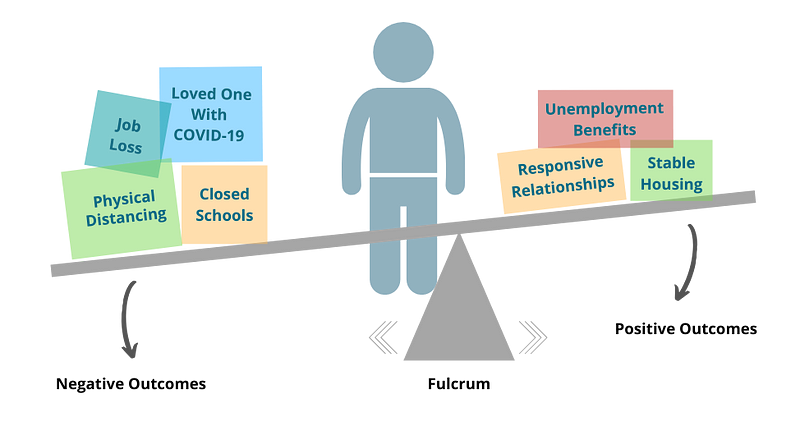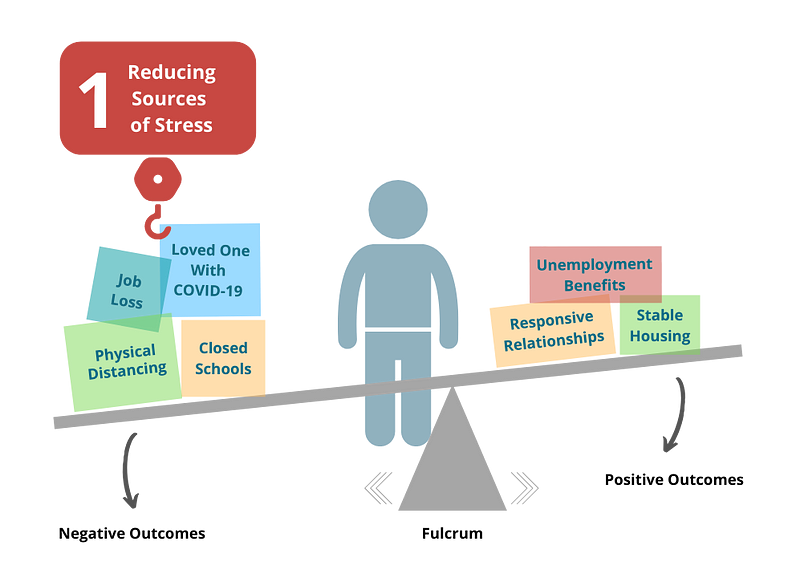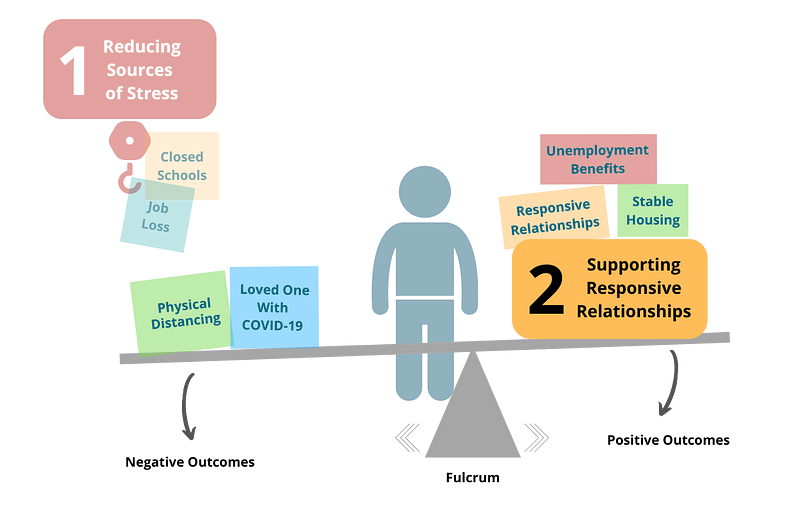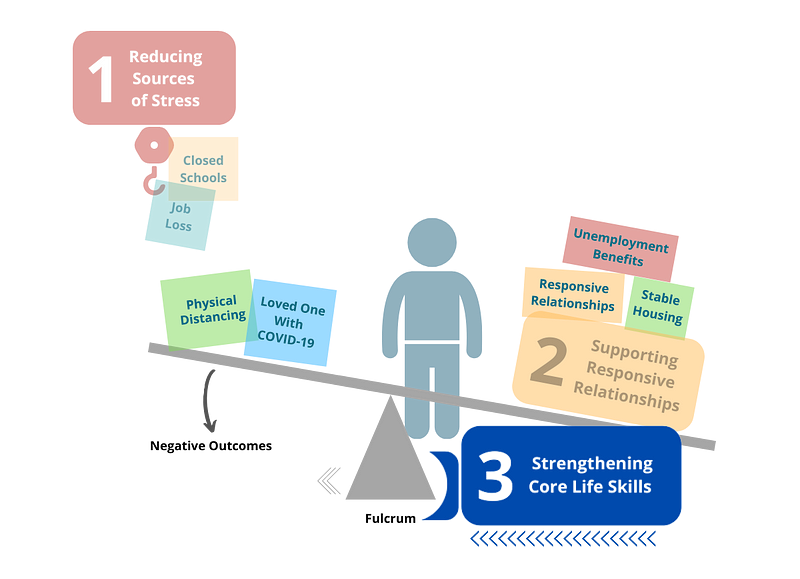How to Support Families and Staff in Building Resilience During COVID-19
Written on
The global spread of the coronavirus disease (COVID-19) has introduced unforeseen stress and challenges for many individuals.
Resilience is essential for navigating and overcoming difficulties. It is not an inherent trait; rather, it is developed gradually through experiences that interact with our unique genetic factors. This individuality explains why people respond differently to stressors like the COVID-19 pandemic.
Picture resilience as a balance beam, where adverse experiences shift the weight toward negative outcomes, while positive experiences tilt it toward favorable results. For many during the pandemic, the resilience balance may resemble this:

The point where the balance evens out is termed the “fulcrum.” Its position can influence how easily one can shift toward a positive outcome. Everyone’s fulcrum is uniquely positioned, which accounts for the varied ways individuals manage life's challenges. The encouraging aspect is that one can relocate this fulcrum by developing a toolkit of adaptive skills. (More on that later.)
What can we do now to enhance resilience during the COVID-19 crisis? Additionally, how can we prepare for future crises?
Research in child development highlights three strategies to influence experiences and adjust the resilience balance:
- Minimize the Negative Influences

To alleviate the negative influences on the resilience scale, we can focus on decreasing stressors for families and staff members. Many organizations are already implementing this and can draw on their experiences to brace for possible future periods of social distancing and lockdowns. Reducing stress may include:
- Assisting families in meeting fundamental needs like food, shelter, diapers, healthcare, childcare, and internet access, or linking them with resources that can assist.
- Guiding unemployed adults in applying for financial support.
- Creating and distributing children’s activity kits, featuring items like coloring books, crayons, puzzles, and craft supplies, to offer parents a brief respite.
- Urging parents, staff, and colleagues to prioritize self-care — even if it’s just a few moments for themselves, a walk, or adequate rest. Ensure staff are informed about and utilizing employee benefits like assistance programs, mental health counseling, and paid leave.
- Enhance the Positive Influences

We can fortify the positive side of the resilience scale by amplifying positive experiences — particularly through supportive relationships. A common trait among resilient children is a stable, nurturing relationship with a caring adult. Adults require these supportive connections as well!
- If you’re engaged with families, you’ve likely discovered new methods to connect, such as phone calls or video chats, during times when in-person visits are limited. While these alternatives may feel somewhat restrictive, remember that you’re not just checking in; you’re offering parents an opportunity to engage in a supportive relationship with a trusted adult during this time of physical separation.
- Encourage and maintain ties with family and friends. Despite the need for physical distancing, it remains vital to reach out through calls, video chats, emails, or letters to engage in meaningful interactions, safeguard emotional health, and mitigate stress during this challenging period. (Additionally, please seek outside help and resources if you or someone else requires assistance.)
- Child development doesn’t halt during a crisis — supporting that growth and fostering resilience can be accomplished without demanding extra time or effort. Simple back-and-forth interactions are free and can occur during daily routines. If your baby coos during a diaper change, respond with a sound. If your toddler points at something, reciprocate and name the object. Engaging in play with a child is a great way to foster these interactions and alleviate stress for everyone involved! (Check out this how-to video and step-by-step guide for further examples of these interactions.)
- Shift the Fulcrum

We can facilitate a positive tilt of the scale by enhancing essential life skills. All individuals require executive function and self-regulation skills to navigate daily life, yet stress can hinder our ability to utilize these skills. During the COVID-19 pandemic, these core life skills are crucial for managing tasks such as planning grocery trips, filling out relief fund applications, navigating support systems, and balancing work with family responsibilities. Adults can bolster these skills through minor yet impactful supports, such as:
- Setting up or subscribing to text reminders for important appointments.
- Utilizing tools like grocery list applications, meal planners, and daily schedules (and making them visible for the entire family).
- Developing step-by-step checklists for accessing relief funds and completing essential applications.
In a crisis like the COVID-19 outbreak, families must first address immediate basic needs before focusing on other matters. However, after the crisis subsides, long-term programs aimed at helping adults and children build and practice core life skills will again be necessary and beneficial.
What’s Next?
Explore more about these three principles and resilience.
Discover additional resources related to COVID-19.
Contact the Center for assistance in implementing these principles in your work.